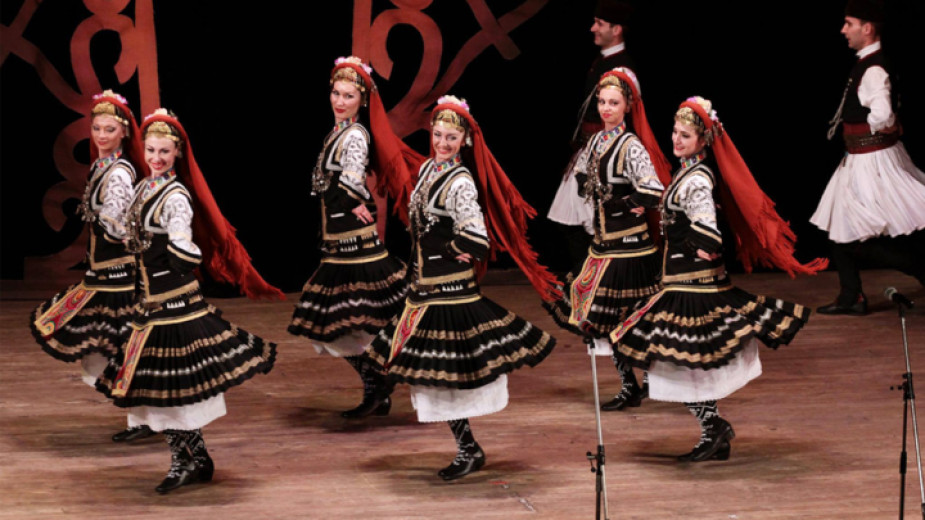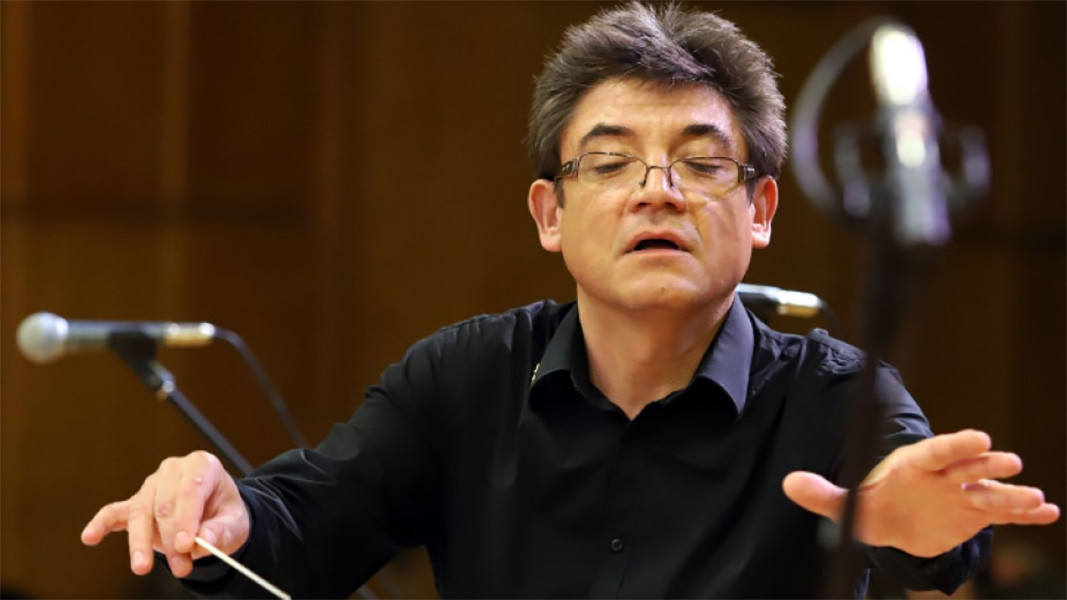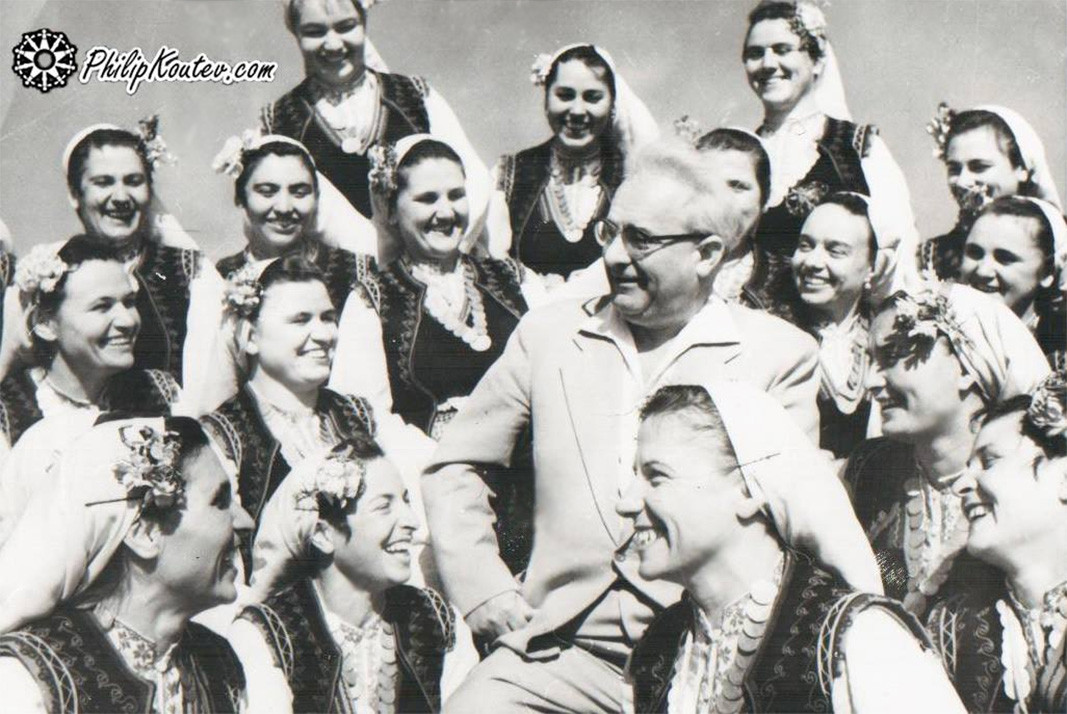 7
7
70 years ago, exactly on the International Labour Day, was the first concert of the State Folklore Ensemble which today bears the name of its founder Philip Kutev. The decree on its creation was issued much earlier, but it took months to hold competitions and form a choir, orchestra and dance troupe. That is why the first public appearance of the group is considered the date of birth of this prestigious national institution.
Over the years, the prestige of the group has been elevated by some of the most famous Bulgarian folk artists – the singers Valkana Stoyanova, Verka Siderova, Nadka Karadjova, Yanka Taneva, kaval player Nikola Ganchev as well as the composers Krassimir Kyurkchiiski, Stefan Dragostinov, Jivka Klinkova, the choreographer Margarita Dikova and many, many others. In the course of many years the director of the Ensemble was Elena Kouteva, daughter of Philip Koutev. At the beginning of 2021, the leadership of the ensemble was taken by Georgi Andreev who has always claimed that for him working in the Ensemble is a pleasure, a field for experiments and creativity.

"Most of my conscious professional life has been spent in this ensemble”, says the composer. “I started working as a conductor of the orchestra before graduating from the Pancho Vladigerov National Music Academy. This is one of the reasons why I did not emigrate, as many of my peers did, looking for opportunities to perform abroad. Already in my university days I was already realized as a musician. After 27 years of work I can say that I know the ensemble in detail, with all its strengths and perspectives. This is a band with a huge history. It set the beginning, it outlined the way for the development of the genre, which is in essence a professional art, created on the basis of folklore sources."
Today in almost every major city in Bulgaria there is a folk ensemble created on the model of Philip Koutev, and the repertoire of Bulgarian folk and academic choirs invariably contains arrangements or original songs of its creator.

"Philip Koutev has two great merits, apart from his role as a composer”, says Georgi Andreev. „He resurrected the folk music culture, which was almost lost. In imitation of the new western models that entered our country around the Liberation, urban folklore flourished at the expense of rural folklore. In this sense, the role of Philip Koutev was huge. In addition to reviving folklore, he placed it on a professional level, turning it into a performing art transformed by composers and choreographers. What has always fascinated me in the Ensemble is the spirit, the feeling that this is where our traditions are sought, preserved and developed. I admire the enthusiasm of all the artists - singers, instrumentalists, dancers, because the salaries they receive are more than insignificant. The only motivation that makes people work there is the love of what they do and the belief that they are part of something worth giving their energy for, no matter what the financial reward. Of course, we will do everything possible to change this, but it requires time”, says Georgi Andreev.

“It is difficult to make plans at the moment, but our goals are for the Ensemble to develop in a direction that has not been taken seriously so far. It is about the adequate presentation of its brilliant possibilities in the conditions of a completely new media environment. On the occasion of our 70th anniversary, we are planning a big concert in Hall 1 of the National Palace of Culture in the autumn in which we will present the best of our classical repertoire, contemporary works, including premieres," says composer Georgi Andreev.
English version Rositsa Petkova
Photos: BGNES, BNR-Ani Petrova, philipkoutev.com, Facebook / @PhilipKoutev
The feast of the Annunciation (Blagoveshtenie in Bulgaria) is a holy day , a symbol of God’s infinite mercy to people and especially to women, blessed to bear new life, but also an embodiment of the eternal human longing for something better in the..
Clocks and bells will ring out in the center of Stara Zagora on Saturday, when the city will host the XXIV Masquerade Games Festival . The event will start with a traditional parade of participants. Attractive babugers, araps, old men and other..
Today marks the 88th anniversary of the birth of remarkable Bulgaria folk singer Nadka Karadzhova . Born on March 14, 1937 in the then Pazardzhik village of Trivoditsi (today - Plovdiv region), she is a descendant of an old musical family. At the age..

+359 2 9336 661
